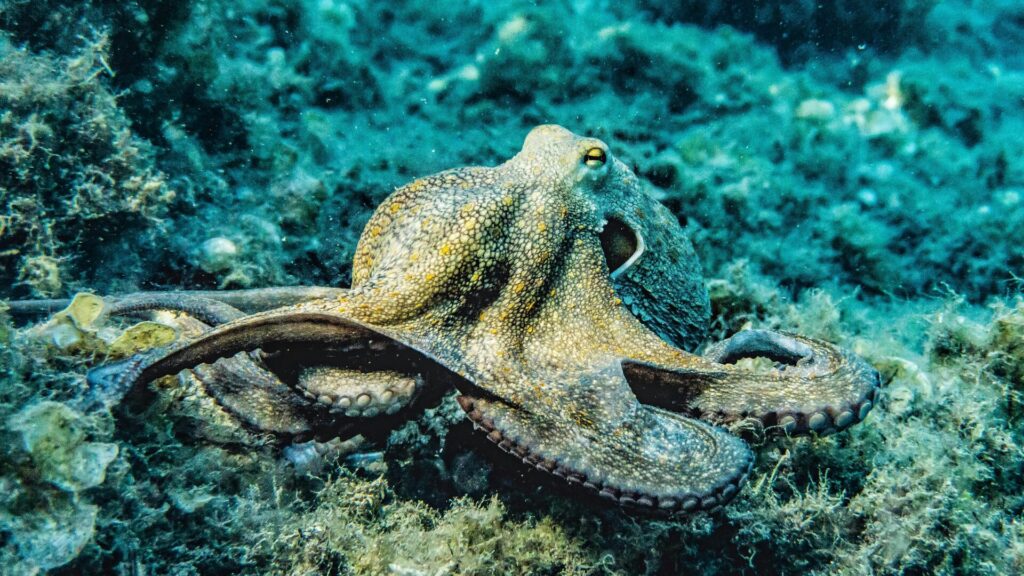Who has never dreamed of becoming invisible? Octopuses have this talent! A study published on November 18, 2024 by Washington researchers sheds light, for the first time, on the energy necessary for this transformation.
Several animals, including cephalopods, molluscs such as octopus or octopus, have the incredible ability to change color. They mainly use it for camouflage, hunting and communication. Scientists have always assumed that this change is energy intensive, but until now, they have never conducted a precise quantitative study on this subject. Researchers Sofie Sonner and Kirt Onthank from the University of Walla Walla in Washington have just published, on November 18, 2024, a study in which they measure (almost) precisely the energy necessary for this transformation in the octopus.
These are, among others, the chromatophoressmall specialized cells, which allow the change in pigmentation. They are connected to the muscular and nervous system of cephalopods. So, ” when we see pictures of colorful octopuses, it means that they have tense skin muscles », explains Kirk Onthank, au magazine Popular Science. But like all movements or changes in our body, it requires a certain amount of energy.
Octopus put to the test to change color
To successfully measure this energy, the two researchers examined skin biopsies (samples) from around twenty different octopuses.
They successively subjected them to darkness and light to stimulate the chromatophores. And then? Sofie Sonner explains: « I measured the difference in oxygen absorption between periods of expansion and contraction of chromatophores. » Finally, these data are extrapolated to calculate the total energy consumption of the body.
In one of the only studies conducted to date on this subject, fish had already “ been subjected either to an environment of changing color in their retention tanks, or to an environment of constant color », says Sofie Sonner. However, this method gives rise to inaccuracies. It does not allow us to distinguish between the energy actually used just for this action, and that released due to stressful conditions (such as a change in environment).

When chromatophores activate, they consume more oxygen
This new study suggests that chromatophores consume a higher rate of oxygen when they activate. Sonner and Onthank calculated that, relative to the entire organism, the total energy consumed to activate this color change is equivalent to that used to maintain the rest of the basic metabolism at rest. And this energy level could even be higher, the authors do not exclude.
One thing is certain: this new discovery, if it provides probable answers on the behavior of octopuses, also contributes to bringing new questions to the surface, particularly regarding their evolutionary aspect.
Source: www.numerama.com


